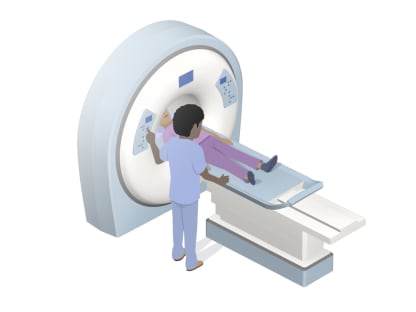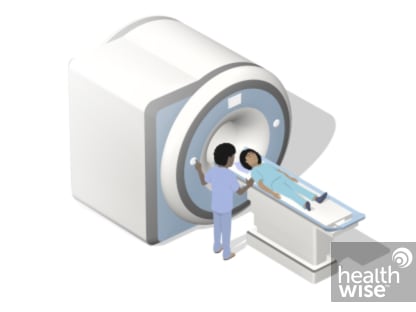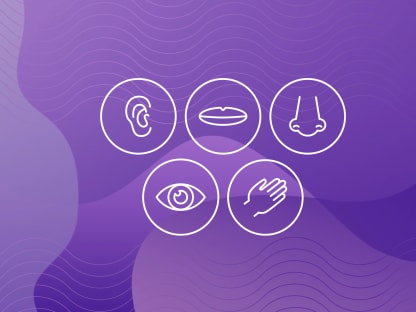Prostatitis
Condition Basics
What is prostatitis?
Prostatitis is swelling or infection of the prostate, Opens dialog. It's often painful. The prostate lies just below your bladder and makes part of the fluid for semen. Prostatitis can be chronic (long-lasting) or, less often, acute (short-term).
What causes it?
Sometimes prostatitis is caused by bacteria. But often the cause isn't known. When bacteria are the cause, they most likely enter the prostate by traveling through the urethra, Opens dialog. Or they may be introduced through the use of a urinary catheter, Opens dialog.
What are the symptoms?
Symptoms of chronic prostatitis are often mild and start slowly over weeks or months. Symptoms of acute prostatitis usually start suddenly and are severe.
When you have prostatitis, you may have pain when you urinate or ejaculate. You may urinate often or have trouble starting a stream of urine. You may pass only a little urine and feel like your bladder isn't completely empty. With acute prostatitis, you may also have a fever and chills.
How is it diagnosed?
A doctor can often tell if you have prostatitis by asking about your symptoms. The doctor will do a physical exam, including a digital rectal exam, Opens dialog to feel the prostate. You may need blood and urine tests to check which type of prostatitis you have or to look for another cause of your problems.
How is prostatitis treated?
Treatment for chronic prostatitis usually starts with taking an antibiotic for several weeks. If you start to feel better, you may keep taking the medicine for 2 to 3 months. If you don't get better while taking antibiotics, more tests may be done.
You may need to try more than one treatment. Other treatments include muscle relaxers and medicines that slow the growth of the prostate.
Treatment may also include self-care, such as drinking plenty of fluids and taking over-the-counter, Opens dialog pain relievers.
Acute prostatitis is usually treated with antibiotics and with self-care, such as drinking plenty of fluids and taking over-the-counter, Opens dialog pain relievers. Your doctor may prescribe medicine to reduce pain and swelling or to soften your stool and relax your bladder muscles.
Things that can increase your risk for prostatitis include:
- A recent urinary tract infection (UTI), Opens dialog.
- Insertion of a urinary catheter, Opens dialog or having a cystoscopy, Opens dialog.
- Sexually transmitted infections, Opens dialog (STIs).
- Injury, such as from riding a bicycle or horse.
If you have had chronic bacterial prostatitis, you have an increased chance of developing it again.
You may not be able to prevent prostatitis. But seek early treatment if you have a possible urinary tract infection, Opens dialog. And practicing safer sex, Opens dialog can reduce your chances of getting a sexually transmitted infection that could cause prostatitis.
Learn more
Chronic prostatitis
Symptoms of chronic prostatitis are often mild and start slowly over weeks or months. They may include:
- An urge to urinate often. But you may pass only small amounts of urine.
- A burning pain when you urinate.
- Trouble starting the urine stream, urinating in waves rather than in a steady stream, having a urine flow that is weaker than normal, and dribbling after urinating.
- Waking up at night to urinate often.
- A feeling of not completely emptying your bladder.
- Pain in your lower back, in the area between the testicles and anus, in the lower belly or upper thighs, or above the pubic area. Pain may be worse during a bowel movement.
- Some pain during or after ejaculation.
- Pain in the tip of your penis.
Sometimes there are no symptoms.
Acute prostatitis
Symptoms of acute prostatitis usually start suddenly and are severe. They may include a fever, chills, and pain when you urinate or ejaculate. You may urinate often or have trouble starting a stream of urine. You may pass only a little urine and feel like your bladder isn't completely empty.
There are different types of prostatitis. The symptoms, treatment, and course of the disease vary for each type.
- Acute prostatitis
Symptoms usually start suddenly and include severe pain and fever. A delay in getting treatment increases the risk of problems. These may include an abscess, Opens dialog in the prostate or a severe infection (sepsis), which can be fatal.
- Chronic prostatitis
Symptoms are often mild and start slowly over weeks or months. Chronic prostatitis often gets better over time without serious problems. But the symptoms sometimes come back.
- Chronic bacterial prostatitis
When chronic prostatitis is caused by bacteria, it:
- Often causes repeated urinary tract infections. The infection may spread to the epididymis, Opens dialog.
- Can be hard to treat. Some medicines have a hard time reaching the prostate.
- Can also be harder to treat when there are infected prostate stones.
Prostatitis can cause stress, anxiety, or depression, especially if it lasts for a long time.
Call your doctor now if you have sudden fever, chills, and urinary symptoms, such as pain or burning with urination or blood or pus in the urine. These symptoms may point to acute prostatitis.
Call your doctor if you have:
- Urinary symptoms and persistent pain in the low back, scrotum, Opens dialog, penis, or the area between the scrotum and anus, or if you have pain with ejaculation or with a bowel movement.
- Recurring urinary tract infections, Opens dialog (UTIs).
- Discharge from your penis or sores on your genitals.
- Problems urinating, such as excessive nighttime urination, trouble starting urinating, decreased urinary stream, or frequent urination that isn't related to drinking lots of fluids.
Watchful waiting
It's common to have some discomfort in your prostate (prostatitis) at some time during your life. If you don't have a fever and chills or extreme pain, you may try home treatment for a few weeks. Take nonprescription pain medicines, such as aspirin, ibuprofen, or acetaminophen, to relieve pain. But if your urinary symptoms and pain continue, be sure to see a doctor.
A doctor can often tell if you have prostatitis by asking about your symptoms and past health. Your doctor will also do a physical exam, including a digital rectal exam, Opens dialog to feel the prostate.
Your doctor may not be able to tell what type of prostatitis you have just from your health history and symptoms. You may need tests to help find out the cause of your prostatitis.
More tests may be needed if:
- Your symptoms don't improve with treatment.
- You keep having prostate infections.
- The symptoms could be caused by bladder or prostate cancer.
- Your doctor thinks that you might have a problem related to prostatitis, such as an abscess, Opens dialog.
Tests may include:
- Complete blood count (CBC).
- Lab tests, such as urine and blood cultures. These check for bacteria in your urine or blood.
- A CT scan, Opens dialog or MRI, Opens dialog of your pelvic area.
- A transrectal ultrasound of your pelvic area.
Learn more
Watch
Chronic prostatitis
Treatment for chronic prostatitis usually starts with taking an antibiotic for several weeks. If you start to feel better, you may keep taking the medicine for a longer time. If you don't get better while taking antibiotics, more tests may be done.
You may need to try more than one treatment for chronic prostatitis. There isn't a standard treatment that works well for everyone. Treatments may include:
- Antibiotics. These are tried first. If your symptoms don't improve, treatment with these medicines is usually stopped.
- Alpha-blockers. These may be used if muscle spasms are causing pain or problems with urinating.
- Medicines that slow the growth of the prostate.
- Medicines to reduce inflammation, such as nonsteroidal anti-inflammatory drugs (NSAIDs). They may relieve pain.
Other treatments may be tried.
- Physical therapy, exercise, or massage therapy may be helpful.
- Counseling, Opens dialog, biofeedback, Opens dialog, or relaxation techniques may help reduce stress that is adding to the pain.
Chronic bacterial prostatitis
To treat chronic bacterial prostatitis, antibiotics are given for 6 to 12 weeks. Long-term antibiotic treatment may be needed if the infection comes back.
- Infected prostate stones (prostatic calculi) can make the infection harder to cure. You may need surgery to remove them.
- Surgery may be needed if urinary tract problems, such as narrowing of the bladder neck or urethra, are causing the prostatitis.
- If prostate infections keep happening, surgery may be needed to remove part of the prostate.
Acute prostatitis
Acute prostatitis is treated with antibiotics, pain and fever medicine, stool softeners, fluids, and rest.
Treatment usually starts with taking an antibiotic. If you don't get better while taking antibiotics, more tests may be done.
If you continue to have a fever, can't urinate, or you need intravenous (I.V.), Opens dialog antibiotics, you may need to go to a hospital for a short time for treatment.
Most people get better quickly. Treatment is usually done at home. This includes drinking plenty of fluids and taking over-the-counter, Opens dialog pain relievers.
Learn more
There are some things you can do at home that may help you be more comfortable.
- Take nonprescription pain relievers, such as aspirin, nonsteroidal anti-inflammatory drugs, Opens dialog (NSAIDs), or acetaminophen.
Be safe with medicines. Read and follow all instructions on the label.
- Sit in a tub of warm water with the water just covering your buttocks, or try a sitz bath, Opens dialog.
- Take care of yourself when you have an infection.
Get plenty of rest, and drink lots of fluids. This will make you feel better and may speed your recovery.
- Eat plenty of high-fiber foods, such as fruit, vegetables, and whole-grain breads and cereal.
- Drink water to avoid constipation. Take a stool softener if needed.
Straining to pass a bowel movement may be very painful when your prostate is inflamed.
- Be physically active.
Sitting for long periods of time can make this problem worse. Try to stand up and walk around for a few minutes every hour while you are awake.
- Avoid alcohol, caffeine, and spicy or acidic foods, especially if they make your symptoms worse.
Spicy foods include hot peppers, chili, pickles, and salsa. Acidic foods include tomato-based products and citrus fruits or juices.
- Try stress management: deep breathing, relaxation, light exercise, and elimination of stressful circumstances.
Stress and anxiety may make your symptoms worse.
Learn more
Watch
Current as of: April 30, 2024
Author: Ignite Healthwise, LLC Staff
Clinical Review Board
All Healthwise education is reviewed by a team that includes physicians, nurses, advanced practitioners, registered dieticians, and other healthcare professionals.
Current as of: April 30, 2024
Author: Ignite Healthwise, LLC Staff
Clinical Review Board
All Healthwise education is reviewed by a team that includes physicians, nurses, advanced practitioners, registered dieticians, and other healthcare professionals.
Topic Contents
This information does not replace the advice of a doctor. Ignite Healthwise, LLC, disclaims any warranty or liability for your use of this information. Your use of this information means that you agree to the Terms of Use. Learn how we develop our content.












